Episodes
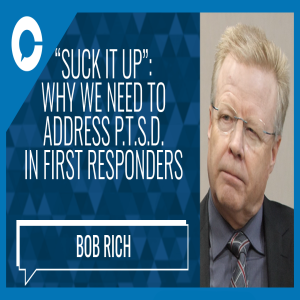
Friday Dec 20, 2019
Bob Rich: First Responder PTSD
Friday Dec 20, 2019
Friday Dec 20, 2019
Ep 273 - First Responder PTSD
Guest: Bob Rich
The average person experiences about four events in their lives that could trigger PTSD. The average career cop encounters between 100 and 400 incidents that could trigger PTSD. Retired Abbotsford Police Chief Bob Rich knows this all too well.
In early 2015 Chief Rich lost two active members of the police department by their own hand. Their deaths shook him to the core. He was forced to look inward at his leadership, at the culture within his police department and in the first responder community. What was happening that PTSD and stigma rates were so high?
Chief Rich took on the responsibility of identifying the source and changing the culture. His first priority became the wellness of his team. Rich says, “These are women and men who put their lives on the line everyday to keep their community safe. In return, it is my job to keep them safe.”
He identified that a “suck it up” culture was one of the root causes and it was counterproductive putting everyone at risk. He and his team went to work to implement those needed changes. Then came the killing of Constable John Davidson, which rocked the policing community in Abbotsford, the Lower Mainland and the province.
Thanks to the support of the Vancouver Police and other police officers who took over law enforcement duties in the city for more than a week, the Abbotsford PD was able to take a knee, psychologically, physically and emotionally. Bob Rick says, “As a result, we didn’t lose another member – which can happen.” In Ontario over the past year, nine officers took their own lives.
Bob Rich is determined to help other police departments do what Abbotsford has begun to do – create a culture that understands the trauma of horrific incidents and supports one another.
We invited Bob Rich to join us for a Conversation That Matters about caring for the well-being of all first responders who care about us.
Conversations That Matter is a partner program for the Morris J Wosk Center for Dialogue at Simon Fraser University. The production of this program is made possible thanks to the support of the following and viewers like you.
Please become a Patreon subscriber and support the production of this program, with a $1 pledge https://goo.gl/ypXyDs

Monday Dec 16, 2019
Vancouver's Looming Industrial Lands Crisis - Eric Aderneck
Monday Dec 16, 2019
Monday Dec 16, 2019
Ep 272 - Looming Industrial Lands Crisis
Guest: Eric Aderneck
Vancouver has a problem! Hemmed in by water, mountains, agricultural land, the border and the Port of Vancouver, industrial land is severely squeezed. Virtually no one is paying attention because industrial employment land isn’t sexy. It doesn’t capture headlines nor votes, and it’s complicated. Metro Vancouver is endeavouring to develop a plan, but with 21 different city and municipal governments – all with different agendas – addressing the many issues collectively is next to impossible.
It’s an important issue because without industrial lands that are available, affordable and adaptable to the changing needs of businesses of all sizes, the consequences will be felt on the roads, in the community, in the environment and in the economy.
As with residential and commercial property, the inspiration to come up with innovative solutions is dumped onto developers who have to weave their way through an increasingly complex set of rules, regulations and processes. Many of the design rules are set in the past and don’t take into account the need to build sites that go skyward and include some commercial office space.
It is projected that within the next four to five years, the Lower Mainland will simply run out of industrial lands. You may ask yourself, “Why should I care?” You don’t have to and most people dismiss it as a minor issue.
But Eric Aderneck, an expert in industrial and employment land use says, "There will be opportunity costs that are lost. Businesses that may want to expand can't, and so they leave, and larger international organizations that may want to come to Vancouver don't because there isn't available space”.
We invited Eric Aderneck to join us for a Conversation That Matters about our need to think in innovative ways about the region’s industrial lands.
Conversations That Matter is a partner program for the Morris J Wosk Center for Dialogue at Simon Fraser University. The production of this program is made possible thanks to the support of the following and viewers like you.
Please become a Patreon subscriber and support the production of this program, with a $1 pledge https://goo.gl/ypXyDs
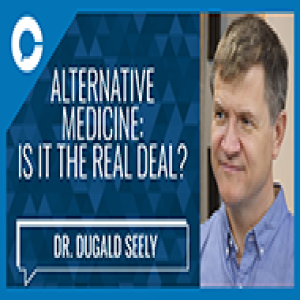
Monday Dec 09, 2019
Dr Dugald Seely: Alternative Medicine, Is it the real deal?
Monday Dec 09, 2019
Monday Dec 09, 2019
Ep 271
Guest: Dr Dugald Seely
The important role of Complementary and Alternative medicine
In 2017, Dr Dugald Seely was awarded the Dr Rogers Prize for contributions to complementary and alternative health in Canada. It is a unique Canadian prize that acknowledges the role of CAMs and it supports research with the awarding of a $250,000 prize.
What exactly is the contribution of complementary therapies to healthcare? Is it a feelgood kinda thing with a placebo effect? Are there direct and verifiable outcomes? And how do complementary and alternative therapies intersect with allopathic medicine?
The pushback against CAMs over the years has been fierce. Up to the 1970s, non-allopathic therapies were known as irregular practices and derided as not being evidence based, meaning those therapies could not be accepted as biomedicine.
Since then, the door of acceptance has cracked open thanks to the efforts of physicians like Dr Rogers, who were willing to introduce therapies they believed would benefit their patients. Those who did so risked their reputations and their license to practice medicine.
Dr Rogers was brought before a review board for employing the use of ozone in the treatment of a patient who was about to have his foot amputated. The treatment was successful and saved the patient's foot. However, a nurse on the ward where the treatment was administered complained to the College of Physicians and Surgeons.
At great expense to himself, Dr Rogers defended his practices, his reputation and the right of physicians to introduce complementary and alternative therapies.
The World Health Organization in 2019 at its 72nd assembly produced a report on Traditional and Complementary Medicine in which is says, “98 member states have developed national policies on T&CM and 124 countries have implemented regulations on herbal medicines.” The report goes on to say that where traditional and complementary care converge, they can help tackle the unique health challenges of the 21st century.
In Canada, Dr Seely is one of a significant number of dedicated health care professionals delivering complementary and alternative care and conducting peer reviewed research.
Dr Seely’s research on cardiovascular disease has been published in the Canadian Medical Association Journal. He is in the midst of an 11 year Thoracic POISE trial in partnership with Ottawa Hospital and he is the founder and executive director of the Ottawa Integrative Cancer Centre, as well as the executive director of research at the Canadian College of Naturopathic Medicine. He says evidence-based complementary medicine has a positive impact on patients and the healthcare system.
We invited Dr Dugald Seely to join us for a Conversation That Matters about empowered health through a holistic approach to wellness.
Conversations That Matter is a partner program for the Morris J Wosk Center for Dialogue at Simon Fraser University. The production of this program is made possible thanks to the support of the following and viewers like you.
Please become a Patreon subscriber and support the production of this program, with a $1 pledge https://goo.gl/ypXyDs

Sunday Dec 08, 2019
William Happer: Carbon Drought?
Sunday Dec 08, 2019
Sunday Dec 08, 2019
William Happer
A Carbon Draught?
Four years ago, I went to Princeton University to interview Professor William Happer.
When I interviewed him, I was aware that he was a CO2 (and its impact on climate) contrarian.
Mr. Happer points out carbon dioxide is an important trace gas and an integral part of the
carbon cycle, a bio-geo-chemical cycle in which carbon is exchanged between the oceans, soil,
rocks and the biosphere.
Virtually all of life on the plant requires CO2 concentrations to be above 150 parts per million.
The concentration of CO2 in the atmosphere over the past 500 million years has been as high as
4,000 ppm and as low as 180 ppm.
Since 1880 when CO2 was measured at Mauna Loa in Hawaii levels have risen from 280 ppm to
413 ppm as of April 2019.
Happer, as you will hear, says the impact of CO2 on temperature rise has already taken effect
and he points to the logarithmic scale, which is a nonlinear scale often used to analyze a large
range of quantities. According to Mr. Happer, it would take another 400 ppm to affect
temperature by one additional degree.
Mr. Happer is also aware of the folly of predictions. And he, like Freeman Dyson, points to the
inability of models to accurately predict climate outcomes. Then add in length of day, which
changes by milliseconds, transferring massive amounts of energy mostly into the oceans – causing oscillations that, according to climatologist Judith Curry, are not considered in current climate models. I must ask: is the science of climate really settled? Can it ever be?
Mr. Happer’s position on climate, his scientific credentials and his role in the Trump
administration have made him a very large target.
He is a physicist who specialized in the study of atomic physics, optics and spectroscopy. He is
the Cyrus Fogg Brackett Professor of Physics and he is the Davisson-Germer Prize winner in
Atomic or Surface Physics. He is not nor could he be a climate scientist because that
designation is so new that UCLA only just launched a degree program in 2018.
Since that interview, Greenpeace outed him in a sting operation and President
Donald Trump recruited Professor Happer to be a member of a Presidential Committee on
Climate Security.
However, in September of 2019, the unflinching Mr. Happer quit. According to Science
Magazine, while Happer may have been unflinching, Trump’s White House isn’t. So on Sept 13,
2019, Mr. Happer resigned.
Professor Happer, as you will see in this interview, firmly believes the impact of CO2 has been misrepresented.
Conversations That Matter is a partner program for the Morris J Wosk Center for Dialogue at Simon Fraser University. The production of this program is made possible thanks to the support of the following and viewers like you.
Please become a Patreon subscriber and support the production of this program, with a $1 pledge https://goo.gl/ypXyDs
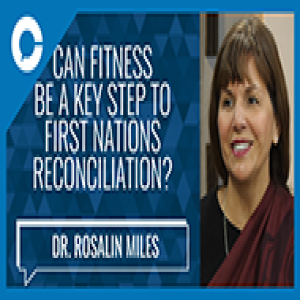
Sunday Dec 08, 2019
Dr Rosalin Miles: Running toward Reconciliation
Sunday Dec 08, 2019
Sunday Dec 08, 2019
Ep 270
Guest: Dr Rosalin Miles
Rainforest Trail Run - a powerful antioxidant
Chief Dan George talked of “the beauty of the trees, the softness of the air, the fragrance of the grass, they speak to me… the trail of the sun and the life that never goes away, they speak to me. And my heart soars.”
The forest, according to Peter Wohleben, is a social network connected by a wood wide web. In his book, “The Hidden Life of Trees,” he says trees talk to one another, they share food, they take care of one another and they support each other. He says it’s no surprise that the saddest trees are those that have been enslaved in isolation in human-constructed systems. Those trees lose their ability to communicate and connect, the result is compromised health and a shorter life span.
So too with humans. We know the devastating impacts of isolation on babies. We know the devastating impact on communities that are cut off or worse intentionally isolated. Canada’s Indian Act isolated First Nations in a way that has compromised their health and life expectancy.
Dr Rosalin Miles thought, what better way to take a step towards better health and reconciliation than in a rainforest? Working with a wide range of health care and sports organizers and organizations, she launched the Rainforest Trail Run, a 5K event that celebrates First Nations cultures and promotes wellness through movement.
The inaugural event took place on Sunday the 29th of September 2019 and was immediately proclaimed a great success as an event, as a coming together and as a step towards reconciliation.
We invited Dr Rosalin Miles to join us for a Conversation That Matters about the healing power of a community in motion in the cradle of Mother Nature.
Conversations That Matter is a partner program for the Morris J Wosk Center for Dialogue at Simon Fraser University. The production of this program is made possible thanks to the support of the following and viewers like you.
Please become a Patreon subscriber and support the production of this program, with a $1 pledge https://goo.gl/ypXyDs
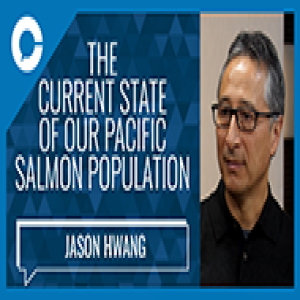
Thursday Dec 05, 2019
BC Salmon in Crisis
Thursday Dec 05, 2019
Thursday Dec 05, 2019
Ep 269
Guest: Jason Hwang
The State of Salmon
More often than not, when we hear news about Pacific salmon, we brace yourselves for more bad news. Recently we learned that the Fraser River sockeye returns were the worst on record. Add in the Big Bar landslide, the impacts of ecosystem changes, like eelgrass depletion, algae blooms and the on-going debate over open-net pen salmon fish farms, and you can’t help but start to think it’s all bad news.
Luckily, Pacific salmon are remarkably resilient. They are still here and there are still many opportunities for us to do all we can to ensure their survivability and return to abundance.
The Pacific Salmon Foundation is committed to the work of ensuring Pacific salmon survive. The organization funds a number of stream and habitat restoration projects along with scientific research. PSF works with Genome BC, the Department of Fisheries and Oceans and a wide range of other agencies to develop science that will better inform decision makers on how best to save our salmon.
We invited the Pacific Salmon Foundation’s Vice President for Salmon, Jason Hwang, to join us for a Conversation That Matters about the state of salmon. This episode of the show will also serve as the kickoff to a new series of “Salmon Matter” casts that can be seen on the Conversations That Matter channel each month starting in January 2020.
Conversations That Matter is a partner program for the Morris J Wosk Center for Dialogue at Simon Fraser University. The production of this program is made possible thanks to the support of the following and viewers like you.
Please become a Patreon subscriber and support the production of this program, with a $1 pledge https://goo.gl/ypXyDs
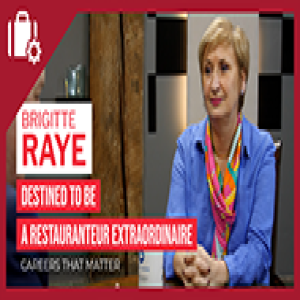
Tuesday Dec 03, 2019
Brigitte Raye: Restaurateur Extraordinaire
Tuesday Dec 03, 2019
Tuesday Dec 03, 2019
Ep 13 Brigitte Raye
Restauranteur Extraordinaire
The statistics suck. Small independent restaurants have a survival rate that is so poor you can’t help but wonder how do any of them survive? Food costs are soaring, rental costs, taxes, wages are all pointing upward. How can anyone survive?
As someone who appreciates the unique dining experiences that independent boutique restaurants offer, I reached out to the owner and founder of one of my favorites, Orto which is in North Vancouver.
What makes it a favorite of mine starts with the owner who is always on the floor making sure that everyone who enters feels special. She really knows everyone’s name. So how in a place like Vancouver can she survive when so many don’t?
In this episode of Careers That Matter we meet the remarkable Brigitte Raye to share her life long passion for the food service industry and share a few insights into how to make it as an independent.
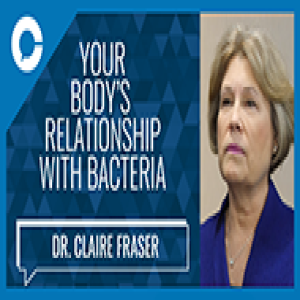
Monday Dec 02, 2019
Dr Claire Fraser: You are not Alone
Monday Dec 02, 2019
Monday Dec 02, 2019
Ep 268
Guest: Dr Claire Fraser
You Are Not Alone
Your body has been colonized by bacteria, fungi, protozoa, viruses and microbes. There are so many of them that you amount for about half of you and the other half are all of the other bits of organic life that like to call you home. They are known as the microbiome and they possess 200 times more genes than you do.
Think of a part of your body and that’s where you’ll find microbes and bacteria and nowhere more so than in your gastrointestinal tract. Most of them live in perfect harmony with you when your body functions the way it was designed to work. When something goes awry... well, that’s when everything gets knocked off kilter and you can get sick, really sick.
Antibiotics that are designed to treat disease and infection also kill off enormous amounts of microbes and set up an environment that can and often leads to C-Diff, or C. difficile, which causes diarrhea and colitis.
Understanding the complex interplay between microbes, bacteria and the myriad fungi and protozoa in your GI is underway. One of the key elements in establishing a baseline in the on-going research has been the mapping of the human microbiome.
Recently, Dr Claire Fraser, a leader in genomics who played a lead role in mapping the human genome, who used genomics to identify the source of the deadly 2001 anthrax attacks, has been instrumental in the NIH mapping of the microbiome project and is Genome BC’s 2019 Don Rix Distinguished Keynote speaker. She joined us for a Conversation That Matters about you, the organisms you are host to and your relationship with them.
Conversations That Matter is a partner program for the Morris J Wosk Center for Dialogue at Simon Fraser University. The production of this program is made possible thanks to the support of the following and viewers like you.
Please become a Patreon subscriber and support the production of this program, with a $1 pledge https://goo.gl/ypXyDs
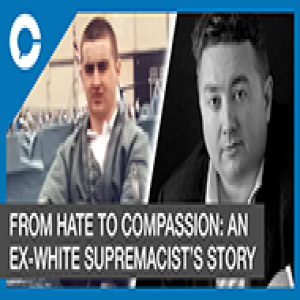
Saturday Nov 30, 2019
Tony McAleer - Life After Hate
Saturday Nov 30, 2019
Saturday Nov 30, 2019
Ep 267
Guest: Tony McAleer
The Cure for Hate
To hate someone is a powerful emotional response that can easily escalate to violence. In his book, “The Cure for Hate,” former white supremist Tony McAleer takes the reader inside his life story. Born into an affluent Vancouver family, the events of his life lead him to join some of the most notorious neo-Nazi groups in Canada and the US.
My initial reaction to reading his book and interviewing him was one of great hesitation. I did not want to give voice in any manner to the ideas of hate and xenophobia. With trepidation, I opened the book to discover the story of a lonely young man attempting to find his place in the world – a world that did not understand his emotional needs – and subsequently every action and reaction to him was another push into an unimaginable life.
Once isolated from mainstream society, McAleer only had his new found community to bond with: a community that provided him with the sense of belonging he desperately wanted. Not to paint a picture of poor Tony, because as he freely admits, he made decisions that firmly placed him in that world, saying, “I am not offering excuses and I accept responsibility for what I did.”
Along the way, his beliefs changed. The journey away from hate was a long and arduous one that lacked compassion and understanding. Most certainly there was very little love, yet it is love, radical compassion that McAleer says he and others must have to overcome hate.
His book breaks down stereotypes and offers piercing insights into how regular people are drawn to hate and violent extremism. Most importantly, “ The Cure for Hate” offers insight into the long and challenging path out of that world.
We invited Tony McAleer, one of the founders of Life After Hate, to join us for a Conversation That Matters about his mission to help people leave hate groups.
Conversations That Matter is a partner program for the Morris J Wosk Center for Dialogue at Simon Fraser University. The production of this program is made possible thanks to the support of the following and viewers like you.
Please become a Patreon subscriber and support the production of this program, with a $1 pledge https://goo.gl/ypXyDs
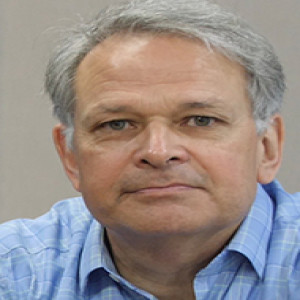
Monday Nov 25, 2019
Paul Dragan: Big Wheel at the Bike Shop
Monday Nov 25, 2019
Monday Nov 25, 2019
Ep 12 Paul Dragan
Big Wheel at the Bike Shop
As a young lad Paul Dragon was given his first bicycle which gave him the freedom to explore the world. First in rural Nova Scotia, then as a road racer in Europe and onto a life an entrepreneur. Paul loves bikes, everything about them, wheels, spokes, tires, tubes and value stems to name just a few of the many parts of a bicycle.
He also loves being in business, being in control of his day, his destiny. Negotiating leases, designing new equipment for bikes, embracing new technology, marketing, customer relations and working with staff.
In this episode of Careers That Matter we meet a remarkable man who is helping to re-shape urban transportation.

